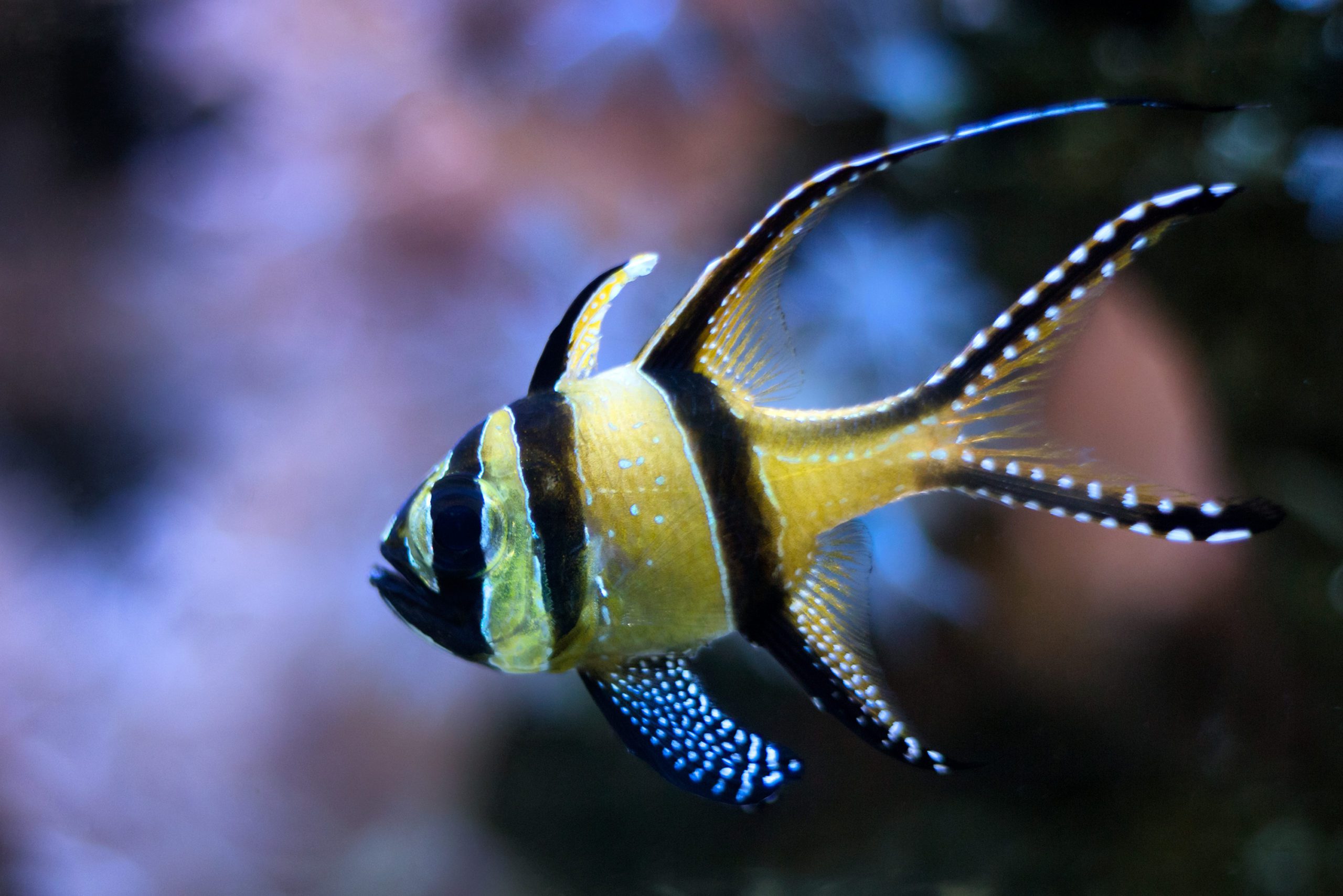Dovetail Genomics and Revive & Restore Form Partnership To Sequence
and Assemble Genomes of 15 Endangered Species
“A Genome for Basuki” will Crowd-source Funds to Sequence and Assemble the Critically Endangered Banggai Cardinalfish Genome.
SCOTTS VALLEY, Calif., August 9, 2021 – Dovetail Genomics, the world-leader in high-quality de novo genome assembly, and Revive & Restore, the leading wildlife conservation organization promoting the incorporation of biotechnologies into standard conservation practice, announced today a new partnership that will accelerate the use of de novo genome assembly in the conservation efforts of threatened and endangered species.
Through its Wild Genomes program, Revive & Restore is funding high-quality, de novo genome assembly for select species in which an immediate, practical application of genomic data can inform and improve conservation efforts. Dovetail Genomics will be the de novo genome assembly provider for this effort, building on the company’s near decade-long success in delivering over 1600 high-quality plant and animal assemblies to hundreds of researchers across the globe.
“We are honored that Revive & Restore has selected Dovetail to be their genome assembly partner,” said Todd Dickinson, CEO of Dovetail Genomics. “Applying high-quality reference genomes more broadly to biodiversity efforts will advance conservation efforts globally as it quickly becomes a standard tool for the conservation biologist.”
Global biodiversity is being lost at an alarming rate due to climate change and other human-based pressures. Perhaps one of mankind’s most important responsibilities is the preservation and even enhancement of biodiversity, for this generation and those to come. A high-quality reference genome assembly is required to fully understand the biology of any organism and is a critical tool for species preservation.
“Genomic insights are foundational to genetic rescue. The information that is held within a species’ DNA can help conservationists discover the genetic basis of adaptability and resilience, reveal breeding structures, the genetics of stress and immune responses or local adaptations. This information can help us predict a species’ responses to climate change, and allow people to make better wildlife management decisions,” said Revive & Restore’s Wild Genomes program manager Bridget Baumgartner.
Revive & Restore will initially leverage Dovetail Genomics’ experience and sample-to-assembly workflow to build reference genomes for 15 endangered species in the Revive & Restore Wild Genomes program. One of these species, the Benggai cardinalfish, will be funded using a unique crowd-sourcing arrangement. Dovetail Genomics will donate $500 on behalf of every Dovetail services customer starting August 9, 2021, until enough funds are raised to sequence and assemble the cardinalfish genome. The genome assembly will be available as an open resource to the scientific community.
Learn more about this program: https://dovetailgenomics.com/a-genome-for-basuki/.
The male Banggai cardinalfish specimen that will be sequenced has been nicknamed “Basuki,” which means “to prosper or flourish.” The goal of this program is to help restore the Banggai cardinalfish population back to historical numbers. Banggai cardinalfish went from discovery to near extinction in a matter of a few years due to high demand in the aquarium trade; their current status is endangered – and their population is in severe decline. The Banggai cardinalfish distribution range is extremely small – a 23-square-kilometer region of the Banggai Archipelago in Indonesia. Several local populations are now either extinct or vanishing. Unlike most other coral reef fishes, Banggai cardinalfish lack a pelagic larval phase – that portion of their life where dispersal occurs. Instead, they exhibit mouthbrooding and direct development, where juveniles remain close to their parents. This unique life history results in genetically distinct local populations that are ecologically and evolutionarily significant, but also extremely vulnerable.
“We are thrilled to finally have the opportunity to utilize a genome assembly for this critically endangered fish,” stated Giacomo Bernardi, Ph.D., Professor of Ecology and Evolutionary Biology at UC Santa Cruz. “The genome assembly will be an important tool that we will put to use immediately to measure population diversity, heterozygosity, and other metrics that will help us in our quest to save this species.”
About Revive & Restore
Revive & Restore is the leading wildlife conservation organization promoting the incorporation of biotechnologies into standard conservation practice. The Sausalito, California non-profit was formed in 2012 with the idea that 21st-century biotechnology can and should be used to enhance genetic diversity, build disease resistance, facilitate adaptation, and more. Its mission is to enhance biodiversity through the genetic rescue of endangered and extinct species.
Wild Genomes is part of Revive & Restore’s Catalyst Science Fund, which supports proof-of-concept science to advance the development of new biotechnology tools for conservation. Launched in 2018, the Catalyst Science Fund is designed to hasten impactful innovations in conservation. A key barrier to the adoption of genomic solutions by the conservation community has been the lack of success stories. To that end, the Catalyst Science Fund supports early-stage, transformative bio-science research, and proof-of-concept projects.
For more information visit https://www.reviverestore.org/wild-genomes and follow Revive & Restore on Twitter @Revive_Restore.
About Dovetail Genomics
Dovetail Genomics LLC is transforming genomics by making long-range information readily accessible to all. The company enables researchers and clinicians to solve complex problems involving de novo assembly, structural variation, microbiome analysis, cancer research, phasing analysis and more by providing them a more comprehensive view of the genome. With 68 pending applications and 14 issued patents, its proprietary in vitro proximity ligation approach and assembly algorithms simplify genomic discovery by integrating the highest quality long-range genomic information with next-gen sequencing output. Dovetail is based in Scotts Valley, California. For more information on Dovetail, its technology, and service offerings, visit https://dovetailgenomics.com/omni-c. Follow Dovetail Genonics on Twitter @DTGenomics.




